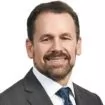Bermuda has firmly established itself as the market leader and domicile of choice for insurance-linked securities (ILS), with its favourable regulatory environment and reputation as a leading offshore financial centre, according to Tim Faries, who leads Appleby's Insurance team globally and in Bermuda and also heads Bermuda's Corporate practice team.
Since the special purpose insurer (SPI) category was introduced by the Bermuda Monetary Authority (BMA) in 2009, he said the industry has really taken off on the Island to a point where Bermuda is now the unquestioned top domicile for the ILS market, which is estimated to be worth $25 billion in capital globally.
Faries puts the Island's unparalleled global success in this sector down to having the right regulatory framework in place that allows new ILS structures to be established both quickly and efficiently. Added to this, he said the BMA has a reputation of being both accessible for companies wanting to do business and well respected internationally. He said: "It works well on both sides of the equation. From a consumer's perspective, they have a regulator who can address issues quickly and efficiently, and on the other side of the coin they have a high standing in the global community.
"Because ILS products are relatively low cost, the time and cost efficiencies that can be achieved are paramount and certainly in our experience they can be a key factor in the decision when it comes to choosing a domicile."
Faries said that the Island's size of reinsurance market and reputation as a traditional property-catastrophe hub also made it a natural fit for ILS.
"Many of the risks that are sought to be financed through ILS structures are already being participated in by Bermuda's reinsurance market," he said.
However, he warned that Bermuda must avoid becoming complacent in order to stay one step ahead of competitors. He said: "One of the main challenges for the jurisdiction is to ensure that we remain in the premium position that we have established for ourselves.
"Over-regulation of what are essentially fully funded vehicles would have a negative effect, as would anything that breaks the efficiency and cost effectiveness of doing business in Bermuda."
Faries added that it was also key to keep in step with forthcoming legislation and regulation, such as Solvency II equivalence: "More broadly, anything that happens to Bermuda's wider reinsurance market could also very much have an impact on ILS.
"Therefore it's key that we remain onside, particularly with the likes of Solvency II equivalency, which is expected to be achieved in the coming year."
Another potential challenge for ILS, he said was the expected rise in interest rates over the next year, making traditional investments more attractive once again in terms of return.
He said: "Over the last number of years we have seen a tremendous growth in ILS and I think there will always be a place for nontraditional investment products that are uncorrelated to financial events or markets.
"However, there is the chance that a rise in interest rates could dampen demand and appetite for these products.
"That said, traditionally the types of investors who would respond to that change are not the types who would tend to invest in these products in the first place."
The biggest potential 'game-changer', he foresees is a major loss event that would wipe out an entire cat bond.
Cat bond issuance hit $2.1 billion in the fourth quarter of 2014, topping off a record year that saw more than $8 billion of non-life cat bonds issued.
Faries said that the take-up of ILS has had a profound effect on the traditional reinsurance market of speeding up the consolidation process among the industry's major players. "When $25 billion is taken away from the traditional reinsurance sector in the form of ILS, of course that will have had some effect on the market," he said.
However, he does not foresee a tipping point in the future when ILS overtakes the traditional market.
"Some market analysts have predicted that if ILS were to experience almost exponential growth up to 2017 or 2018 then it might reach the point where it accounts for one third of non-life reinsurance capacity.
"But that's dependent on some pretty aggressive growth and while I don't see a point where ILS becomes the dominant force in the reinsurance market in the near to mid-term, it's certainly going to be an increasing influence on how reinsurers use their capital and underwrite their risks in the future.
"There's no doubt that the ILS phenomenon has changed the way reinsurance business is done with almost all, if not all, of the big traditional players involved, both as investors and cedents."
Looking ahead to the remainder of 2015 and beyond, Faries expects the ILS market to continue to grow robustly with several renewals projected this year as deals are set to mature and capital is redeployed, as well as the expansion into new lines, geographical areas and types of structures, combined with strong investor demand as companies look to diversify their books.
"We are seeing the proliferation of the ILS concept away from its purest form of property-catastrophe bonds," he said. "Last year we saw a number of deals in the life and health space, in particular, and I expect that's going to continue through 2015."
Originally published in Hamilton Bermuda, in Business for 200 Years, 1815 to 2015 - June 2015
The content of this article is intended to provide a general guide to the subject matter. Specialist advice should be sought about your specific circumstances.


